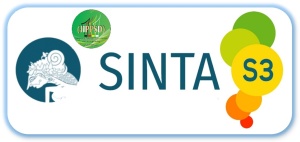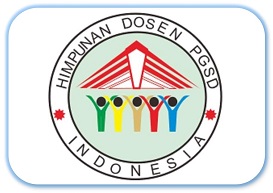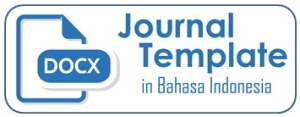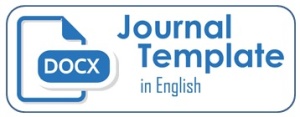Media Komik Digital Melalui Online Flipbook Guna Meningkatkan Penguasaan Literasi Sains Siswa Kelas V Sekolah Dasar
 ), Farid Ahmadi(2),
), Farid Ahmadi(2), (1) Program Studi Pendidikan Guru Sekolah Dasar, Universitas Negeri Semarang, Kota Semarang
(2) Program Studi Pendidikan Guru Sekolah Dasar, Universitas Negeri Semarang, Kota Semarang
 Corresponding Author
Corresponding Author
DOI : https://doi.org/10.24036/jippsd.v8i2.129995
Full Text:
 Language : en
Language : en
Abstract
Keywords
References
Afifah, N. L., Murtono, Santoso, & Ardianti, S. D. (2021). Development of Pocket Book Based on Science Literacy. Journal of Physics: Conference Series, 1823(1). https://doi.org/10.1088/1742-6596/1823/1/012075
Ahmadi, F., Rochmad, R., Lestari, F. P., & Harjunowibowo, D. (2021). The Development of Mathematics Comic Containing Pancasila Values to Develop Character of Elementary School Students: A Case Study of Indonesia. Journal of Innovation in Educational and Cultural Research, 2(1), 25–34. https://doi.org/10.46843/jiecr.v2i1.20
Ahmadi, F., & Iswara, H. S. (2024). Exploration of ethnomathematics through e-comic in the Merdeka curriculum. 040025. https://doi.org/10.1063/5.0211746
Aka, K. A., Aprilia, H. M., Permana, E. P., & Afandi, Z. (2023). Natural Resources Utilization Comic Media Based on Local Wisdom: Mount Kelud Kediri. International Journal of Elementary Education, 7(1), 124–133. https://doi.org/10.23887/ijee.v7i1.53783
Akcanca, N. (2020). An alternative teaching tool in science education: Educational comics. In International Online Journal of Education and Teaching (IOJET) (Vol. 7, Issue 4). http://iojet.org/index.php/IOJET/article/view/1063
Alfi Riski Ramadanti, & Kurniana Bektiningsih. (2023). Pengembangan Media Pembelajaran Komik Digital Berbasis Flipbook Pada Muatan IPAS Untuk Meningkatkan Hasil Belajar Siswa. Journal for Lesson and Learning Studies, 6(3), 506–515. https://doi.org/10.23887/jlls.v6i3.68053
Ayu Megantari, K., Gede Margunayasa, I., & Gusti Ayu Tri Agustiana, I. (2021). Belajar Sumber Daya Alam Melalui Media Komik Digital. 9(1), 139–149.
Bayraktar, A. (2021). Value of Children’s Literature and Students’ Opinions Regarding Their Favourite Books. International Journal of Progressive Education, 17(4), 341–357. https://doi.org/10.29329/ijpe.2021.366.21
Dika K. 2022. Pengembangan Media Pembelajaran Digital Infografis untuk Meningkatkan Hasil Belajar Siswa pada Materi Sumber Daya Alam Kelas IV SDN 5 Ngasem Kabupaten Jepara. Skripsi. Tidak Diterbitkan. Fakultas Ilmu Pendidikan dan Psikologi. Universitas Negeri Semarang: Semarang.
Ediyani, M., Hayati, U., Salwa, S., Samsul, S., Nursiah, N., & Fauzi, M. B. (2020). Study on Development of Learning Media. Budapest International Research and Critics Institute (BIRCI-Journal): Humanities and Social Sciences, 3(2), 1336–1342. https://doi.org/10.33258/birci.v3i2.989
Fadilla, Z., Ketut Ngurah Ardiawan, M., Eka Sari Karimuddin Abdullah, M., Jannah Ummul Aiman, M., & Hasda, S. (n.d.). METODOLOGI PENELITIAN KUANTITATIF. http://penerbitzaini.com
Hasan, M., Milawati, Mp., Darodjat, Mp., & DrTuti Khairani Harahap, Ma. (n.d.). Makna Peran Media Dalam Komunikasi dan Pembelajaran │i MEDIA PEMBELAJARAN.
Herlina, A., & Hadiyanti, D. (2021). Pengembangan Modul Pembelajaran IPA Digital Berbasis Flipbook Untuk Pembelajaran Daring di Sekolah Dasar. Jurnal Elementaria Edukasia, 4(2), 284–291. https://doi.org/10.31949/jee.v4i1.3344
Kartika Sari, P., Arofatinajah, S., & Fajarianto, O. (2022). Development of Digital Comic on Thematic Learning to Improve Literature Skills of 5th Grade Students in Elementary School. JTP - Jurnal Teknologi Pendidikan, 24(1), 38–49. https://doi.org/10.21009/jtp.v24i1.23700
Kibtiyah, A.M. (n.d.). Pengembangan Komik Digital Berbasis Flipbook Untuk Siswa Kelas V Sekolah Dasar di Kecamatan Pati Kabupaten Pati. https://doi.org/10.5281/zenodo.7133944
Maharsi, I. 2011. Komik: Dunia Kreatif Tanpa Batas. Kata Buku.
Mustikasari, L., Priscylio, G., Hartati, T., & Sopandi, W. (2020). The development of digital comic on ecosystem for thematic learning in elementary schools. Journal of Physics: Conference Series, 1469(1). https://doi.org/10.1088/1742-6596/1469/1/012066
Nafiati, D. A. (2021). Revisi taksonomi Bloom: Kognitif, afektif, dan psikomotorik. Humanika, 21(2), 151–172. https://doi.org/10.21831/hum.v21i2.29252
Nikmah, S., Haroky, F., Jumadi, Wilujeng, I., & Kuswanto, H. (2019). Development of Android Comic Media for the Chapter of Newton’s Gravity to Map Learning Motivation of Students. Journal of Physics: Conference Series, 1233(1). https://doi.org/10.1088/1742-6596/1233/1/012051
Nurdyansyah. (2019). MEDIA PEMBELAJARAN INOVATIF. UMSIDA Press.
Nyoman Karma, I., Ketut Widiada, I., Hamdian Affandi, L., & Studi Pendidikan Guru Sekolah Dasar, P. (2023). PELATIHAN DAN PENDAMPINGAN TENTANG PENGEMBANGAN PERANGKAT PEMBELAJARAN INOVATIF BERBASIS TPACK PADA GURU SDN MITRA KOTA MATARAM. Warta Pengabdian Pendidikan, 3(Desember), 95–104.
OECD. (2019). Programme for International Student Assessment., & Organisation for Economic Co-operation and Development. PISA 2018 results.
Rahma, F. N., Wulandari, F., & Husna, D. U. (2021). Pengaruh Pembelajaran Daring di Masa Pandemi Covid-19 bagi Psikologis Siswa Sekolah Dasar. EDUKATIF : JURNAL ILMU PENDIDIKAN, 3(5), 2470–2477. https://doi.org/10.31004/edukatif.v3i5.864
Rizal, R., Setiawan, W., & Rusdiana, D. (2019). Digital literacy of preservice science teacher. Journal of Physics: Conference Series, 1157(2). https://doi.org/10.1088/1742-6596/1157/2/022058
Rusilowati, A., Astuti, B., & Rahman, N. A. (2019). How to improve student’s scientific literacy. Journal of Physics: Conference Series, 1170(1). https://doi.org/10.1088/1742-6596/1170/1/012028
Sugiyono. 2016. Metode Penelitian Pendidikan. Alfabeta.
Triwahyuningtyas, D., Ningtyas, A. S., & Rahayu, S. (2020). The problem-based learning e-module of planes using Kvisoft Flipbook Maker for elementary school students. Jurnal Prima Edukasia, 8(2), 199–208. https://doi.org/10.21831/jpe.v8i2.34446
Wayan Widana, I. (2020). The Effect of Digital Literacy on the Ability of Teachers to Develop HOTS-based Assessment. Journal of Physics: Conference Series, 1503(1). https://doi.org/10.1088/1742-6596/1503/1/012045
Winarni, E. W., Hambali, D., & Purwandari, E. P. (2020). Analysis of language and scientific literacy skills for 4th grade elementary school students through discovery learning and ict media. International Journal of Instruction, 13(2), 213–222. https://doi.org/10.29333/iji.2020.13215a
Yuliana, I., Cahyono, M. E., Widodo, W., & Irwanto, I. (2021). The effect of ethnoscience-themed picture books embedded within contextbased learning on students’ scientific literacy. Eurasian Journal of Educational Research, 2021(92), 317–334. https://doi.org/10.14689/ejer.2021.92.16
 Article Metrics
Article Metrics
 Abstract Views : 158 times
Abstract Views : 158 times
 PDF Downloaded : 29 times
PDF Downloaded : 29 times
Refbacks
- There are currently no refbacks.

This work is licensed under a Creative Commons Attribution 4.0 International License.







